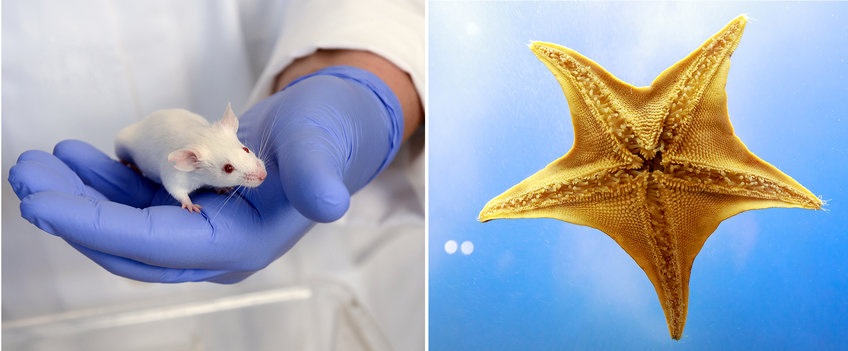
Ethical statement of the MPI-NAT regarding animal welfare
An essential goal of basic biological and medical research is to gain a better understanding of fundamental processes in a living organism. This is the prerequisite for elucidating the cause of diseases and developing appropriate drugs or treatment methods. For this purpose, animal experiments cannot yet be replaced in all areas.
Indeed, the results of most animal experiments are not immediately and directly transferable to humans. But many medical procedures, including organ transplants, the insertion of heart valves, or dialysis, were developed on animal models and are successfully performed in humans every day. Without animal studies, for example, no Covid-19 vaccines would have been developed. Research into neurological and neurodegenerative diseases, as is also carried out at our institute, would also not be possible without animal experiments. Every single drug, every vaccine, and every therapy must be tested in animal experiments beforehand. This applies to a headache pill as well as to cancer treatment. Medical progress in recent decades has led to millions of people being successfully treated and cured in Germany alone. This would not have been possible without animal testing.
Ethical responsibility, the 3-R principle, and a fourth R
Whenever possible, alternative, non-animal methods, such as computer simulations, cell cultures or organoids, are used at the institute to study molecular processes in living cells. Experiments with laboratory animals are only carried out if all other methods are not suitable to address the scientific question. This is also required by law. The necessity of each animal experiment is always carefully considered.
The well-being of laboratory animals is of particular concern to all employees involved in animal experiments: animal welfare, the best possible husbandry conditions and responsible handling and treatment of animals are an ethical obligation for us. They are also an indispensable prerequisite for obtaining usable and reproducible scientific results.
When experiments are planned and carried out, we always apply the 3-R principle:
- Replace …animal experiments by using alternative methods wherever possible,
- Reduce …animal numbers in experiments by improving the techniques and design of experiments,
- Refine …experimental techniques to siginificantly reduce suffering of laboratory animals.
The number of animals per experiment is reduced to the absolute minimum. The way how experiments are performed and the husbandry of laboratory animals will be optimized to minimize animal distress, and animal experiments will be replaced by alternative methods whenever possible.
In addition, all researchers of the Max Planck Society commit to the fourth R “Responsibility” in their 2016 White paper on animal welfare in their institutes.
Every animal experiment on a vertebrate requires approval
Strict regulations control animal experimental research in Germany, more than almost any other area of animal husbandry and use. Every experiment on a vertebrate requires authorization, and the approval authorities check in each individual case whether the experiment is indispensable, ethically justifiable and whether the desired findings can also be obtained by other means. All animal experiments involving vertebrate animals must be approved by the Lower Saxony State Office for Consumer Protection and Food Safety in Oldenburg.
An internal animal welfare committee is also active at our institute. Scientists working in animal experiments, technical assistants, and animal keepers, together with the animal welfare officers, take optimal account of all animal welfare concerns.


